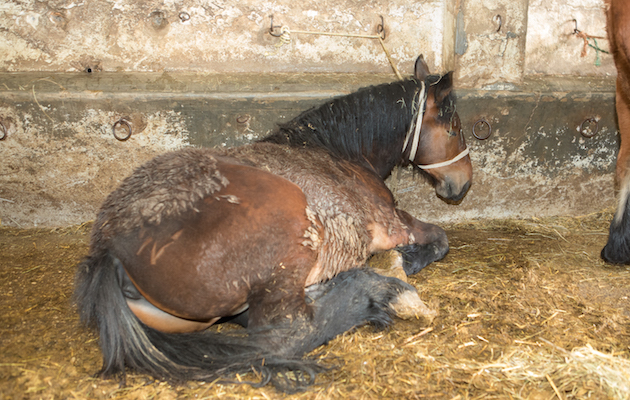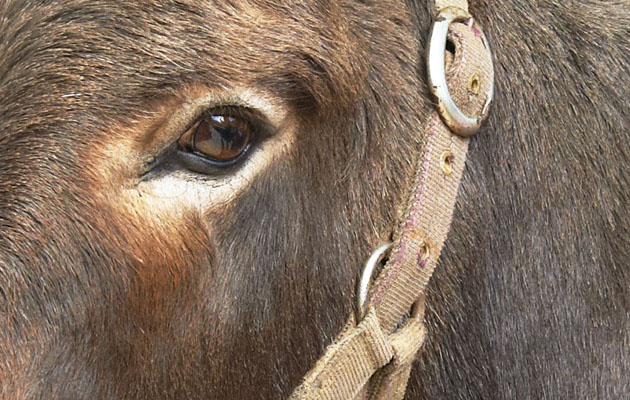Thousands of healthy American horses are being “butchered in a secretive, inhumane trade”, welfare campaigners say, as it emerges that almost 18,000 were sent from the US to Mexico for slaughter last year.
US Department of Agriculture figures show that in 2023, “kill buyers” transported 17,997 horses from Arizona, New Mexico and Texas to slaughterhouses south of the border.
Welfare organisation Animal Wellness Action is calling on the US Congress to ban live export to Mexico or Canada for slaughter for consumption.
“Not one of these horses was raised for slaughter,” a spokesman for Animal Wellness Action said. “They were, for the most part, raised for pleasure, show, work, or racing and opportunistically collected and redirected to Mexico for slaughter.”
Wayne Pacelle, president of Animal Wellness Action and the Center for a Humane Economy, said: “We are sounding the alarm to Congress that healthy American horses are being butchered in a secretive, inhumane trade to Mexico.
“Not one more year of this trafficking of these iconic animals should be tolerated. The animal welfare community and the thoroughbred racing industry are united in demanding an end to this archaic, miserable, sickening trade.”
Last month, New York governor Kathy Hochul signed a bill to ban horse slaughter in New York, and barred the sale, transportation, and export of horses for slaughter. New York joins California, Texas and Illinois – four of the five biggest US states – in banning slaughter of horses for human consumption.
Domestic horse slaughter has been banned in the US since 2007, and there are bills with Congress to codify the ban on slaughter, and to ban live exports.
“If it is wrong to slaughter horses in Dallas or Yuma or DeKalb, it is wrong to slaughter them in Calgary or Quebec City,” Mr Pacelle said.
An investigation a year ago by the Center for a Humane Economy and Animals’ Angels found “immense suffering” of equids transported for slaughter, “with results showing a lack of care, deficient delivery of food or water, and transport in cramped, dangerous, and unsanitary conditions”.
A USDA spokesman told H&H: “The USDA Animal and Plant Health Inspection Service (APHIS) issues health certifications to ensure horses being exported meet the import requirements of the receiving country. APHIS does track the final destination of the animals in the receiving country.”
You might also be interested in:

Long-distance transport for slaughter: the last stop
Read the last of three blogs about H&H's journey across Europe with World Horse Welfare

Charity calls for action over fears donkeys are being ‘bludgeoned to death’ for skin trade *warning: upsetting image*
“Action must be taken now to curb this trade, in the interest of both animal and human welfare”

‘Historic day for animal welfare’ as Government to ban live transport for slaughter

Subscribe to Horse & Hound magazine today – and enjoy unlimited website access all year round
Horse & Hound magazine, out every Thursday, is packed with all the latest news and reports, as well as interviews, specials, nostalgia, vet and training advice. Find how you can enjoy the magazine delivered to your door every week, plus options to upgrade your subscription to access our online service that brings you breaking news and reports as well as other benefits.




